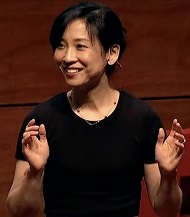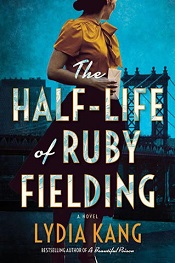In the story, a mysterious character that Will and Maggie meet bears a peculiar obsession over things that are poisonous. Kang explains that her knowledge and interest of poisonous plants came from her own childhood fascination with plant life growing out in the wild. When she was younger, she enjoyed learning and making note of anything that grew around her. Later in college, she was drawn into herbology and the medicinal aspect of plants, which became especially important when she was studying to become a physician. It was amazing to her how simple, everyday plants found in the most common places could be used in medications as important as heart medicine and chemotherapy treatment. She said, “We’re surrounded by all these things, you know, yew trees, or yew shrubs, they’re these evergreens in people’s front lawns all the time…there’s a chemical in that that’s used in chemotherapy…so I’m always looking and seeing things and just fascinated by how plants feed us, and they cure us, and they poison us depending on what they’re doing. I just really love that relationship we have with that natural world.”
In addition to historical fiction, Kang has also written several young adult fiction novels. While many YA novels include characters that are younger than 18, she said that anywhere from a quarter to 50% of her YA readers are adults. There’s a common misconception that YA novels contain light-hearted, fluffy subject matters, however, Kang argues that teen books now are filled with serious and relatable topics, such as trauma, abuse, generational conflict, racism, and other relevant issues that people of all ages deal with. “I think that what ultimately matters is that if you can write a good story and it gets into the hands of readers, you’ve done a great job and we shouldn’t discount the fact that literature is literature and the more people read the better and so if it so happens that it’s young adult and this is a book or series that’s just sparking so much interest in a large readership, that’s better because we all get to experience other lives through books and I think that’s ultimately really good for everybody.”

There are some people who write books and they don’t know how it’s going to end but I can’t, I can’t do that. I have to have charted my path before I start writing so I plot my books out.


You never know what is in your future, so maybe keep in writing a book.

Podcast: Play in new window | Download
Subscribe: RSS

Want to join the discussion?
Feel free to contribute!